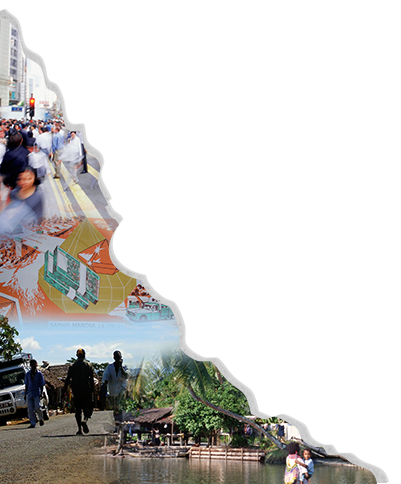Teaching theory is often heavily text-focused. These web links are intended to bring a multimedia dimension to theory. Below you will find links that originate in anthropology-related journals, archives, blogs, YouTube videos, and various professional associations. Many include video clips, some share teaching strategies, and others encourage participation and discussion in online communities.
This list is by no means complete and we expect it to grow over time. We hope you will find these links useful and we encourage those of you who teach theory regularly to share your favourite online resources with us.
Africa in World History and Anthropology: Perceptions and Misperceptions
Historian Saneto Maiko gives a video lecture about the history of perceptions and misperceptions of Africa by historians and anthropologists. The lecture took place in 2008 and was sponsored by the Indiana University-Purdue University Anthropology Club. It lasts approximately 50 minutes.
https://www.youtube.com/watch?v=bmxP-zOl3pw
Anthropology Matters
The Anthropology Matters Journal (AMJ) was designed by graduate students and early-career anthropologists as an online vehicle for discussion of perspective and theory in (mainly) social and cultural anthropology. The journal website is intended especially as a forum for circulating ideas and methods concerning best practices in the writing and teaching of anthropology.
https://www.anthropologymatters.com/index.php?journal=anth_matters&page=index
Becoming Human
The Institute of Human Origins (IHO) is committed to the cross-disciplinary study of human bio-cultural evolution. Founded in 2000, the “Becoming Human” website performs an important role in publicizing new scientific discoveries and perspectives in human origins; the site is also a useful source for students and others seeking basic information and interactive features on the timeline of the “human career.”
https://www.becominghuman.org/node/about-us
Center for a Public Anthropology
The Center for a Public Anthropology, a non-profit institution founded in 2001, promotes the application of anthropological knowledge and perspective to addressing “public problems in public ways.” In particular, the Center seeks to move beyond the long-standing “Do No Harm” adage of anthropological practice to foster proactively positive and socially responsible approaches within the discipline. To this end, the Center strives to make anthropological insights “public” by publishing works of interest beyond the academy, by making ideas and perspectives accessible to those without anthropological training, and by performing a “watchdog” role in monitoring ethics and accountability in institutions of higher education.
https://www.publicanthropology.org/
Cultural Survival
Cultural Survival is an institution dedicated to advancing the interests and defending the cultural rights of the world’s indigenous peoples. Incorporated in 1972, this institution continues today as the voice of activism on behalf of native peoples worldwide. In particular, it promotes legal and political work in support of many indigenous rights goals; among them, the preservation of languages, the protection of ecological environments, and the advancement of an international profile for and knowledge of indigenous peoples. The Cultural Survival website is a forum for the dissemination of indigenous rights news and information about efforts to work on their behalf.
https://www.culturalsurvival.org/
ForensicAnthro.com
ForensicAnthro.com is a website devoted to forensic anthropology and human osteology. While the site is of limited use as a forum for communication, it provides many useful online resources students and professionals—for instance, links to information on publications, university departments, and professional organizations.
https://www.forensicanthro.com/education.html
Interviews with German Anthropologists
Fifteen video interviews with German anthropologists offer reflections on the history of German anthropology from 1945 into the 1990s. The interviews are in German with English subtitles. There are links to the texts of additional interviews that were not videotaped. Each interview lasts from one-and-a-half to two hours.
https://www.germananthropology.com/
National Anthropological Archives
The National Anthropological Archives and Human Studies Film Archives, both housed at the Smithsonian Institution in Washington D.C., collect and preserve contemporary and historical materials of anthropological value in order to document the world’s cultures and the history of anthropological research. The website features a number of important online visual collections related to indigenous North America, as well as catalogs of the Archives’ collections, a search engine, and a means of ordering digital, film, and print reproductions.
https://www.nmnh.si.edu/naa/
Nineteenth-Century Explorers and Anthropologists
Six anthropologists at the Smithsonian Institution share their knowledge, in the form of 5-minute videos, of the establishment of some of the Institution’s major foundational collections. One collection resulted from an expedition undertaken in the 1880s to determine who built mysterious ancient earthen mounds in eastern North America.
https://anthropology.si.edu/founding_collections.html
Open Anthropology Cooperative on Teaching Anthropology
The Open Anthropology Cooperative was launched in 2009 by a group of friends who met on Twitter. One of their topics for sharing ideas is the teaching of anthropology. The Cooperative’s website provides a forum for the establishment and expansion of sharing ideas about teaching anthropological theory.
https://openanthcoop.ning.com/group/teachinganthropology
Oxford Bibliographies: Anthropology
This link connects to the anthropology section of the online “Oxford Bibliographies.” This growing collection of encyclopedia entries is an interactive research guide that combines elements of traditional reference volumes with a powerful search engine capable of facilitating scholarly research across hundreds of individual subject entries.
https://www.oxfordbibliographies.com/browse?module_0=obo-9780199766567
Savage Minds
Savage Minds is among the best known anthropological blogs, where students, professionals, and interested outsiders discuss issues and controversies of anthropological interest. In addition, the site serves as a clearing house for anthropological news, views, and reviews from around the Internet.
https://www.savageminds.org
The Society for Anthropology in Community Colleges
The Society for Anthropology in Community Colleges (SACC) is a section of the American Anthropological Association that addresses the concerns of teachers in community colleges, two- and four-year colleges and universities, and pre-collegiate schools. Founded in 1978, it focuses on anthropology teaching, notably in its journal Teaching Anthropology: SACC Notes. SACC’s website has room for expansion into matters pertaining to teaching anthropological theory.
https://www.aaanet.org/sections/sacc/
Teaching Anthropology
Teaching Anthropology (TA) is a peer-reviewed, open-access electronic journal of the Royal Anthropological Institute. Begun in 2011, it has potential to serve as a forum for exchanging views on teaching anthropological theory, notably in the United Kingdom. The journal also sponsors an associated blog.
https://www.teachinganthropology.org/index.php?journal=teach_anth8page=index
Teaching Anthropology Network
The Teaching Anthropology Network (TAN) is one of several electronic networks of the European Association of Social Anthropologists. It features events, resources, and publications linked to the European scene. This is a website with potential to serve as a forum for promoting the teaching of anthropological theory.
https://www.easaonline.org/networks/teaching/
Visual Dialogues in Anthropology
Visual Dialogues is a series of eighteen videos in which senior anthropologists reflect on the history of anthropology and their personal involvement with it. The videos were made in the 1980s at various locations in North America, including Canada, as a project of anthropologists at the University of Florida. They range from one to two hours in length.
https://www.youtube.com/playlist?list=PLA579377AD7A92A18
Writing Culture @ 25
This link provides access to six videos of anthropologists reflecting on the impact of the theoretically influential book Writing Culture twenty-five years after its initial publication in 1986. The videos are based on a commemorative session held at Duke University in 2011. Featured are anthropologists James Clifford, George Marcus, and Michael Tausig, among others. Each video lasts approximately five minutes.
https://www.culanth.org/?q=node/658



